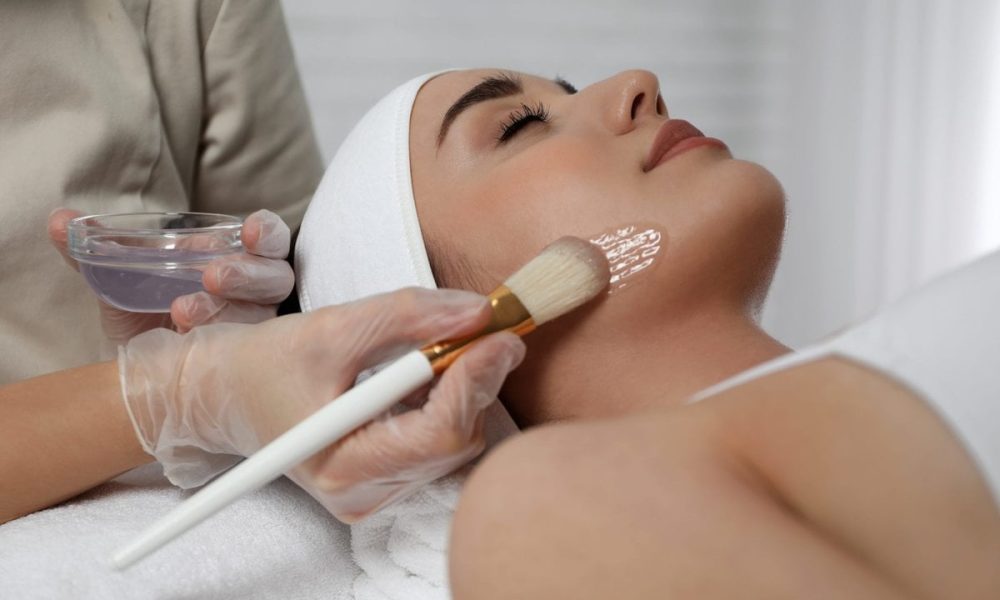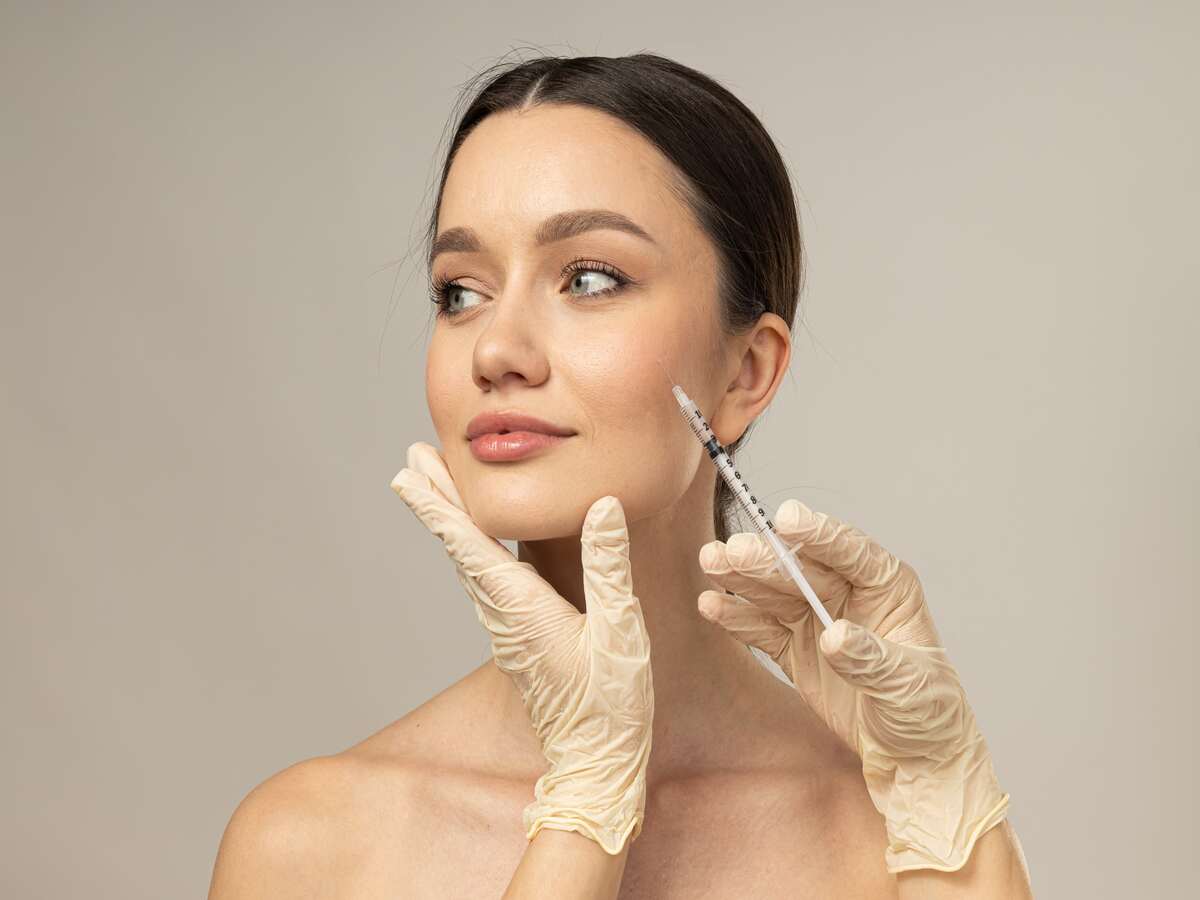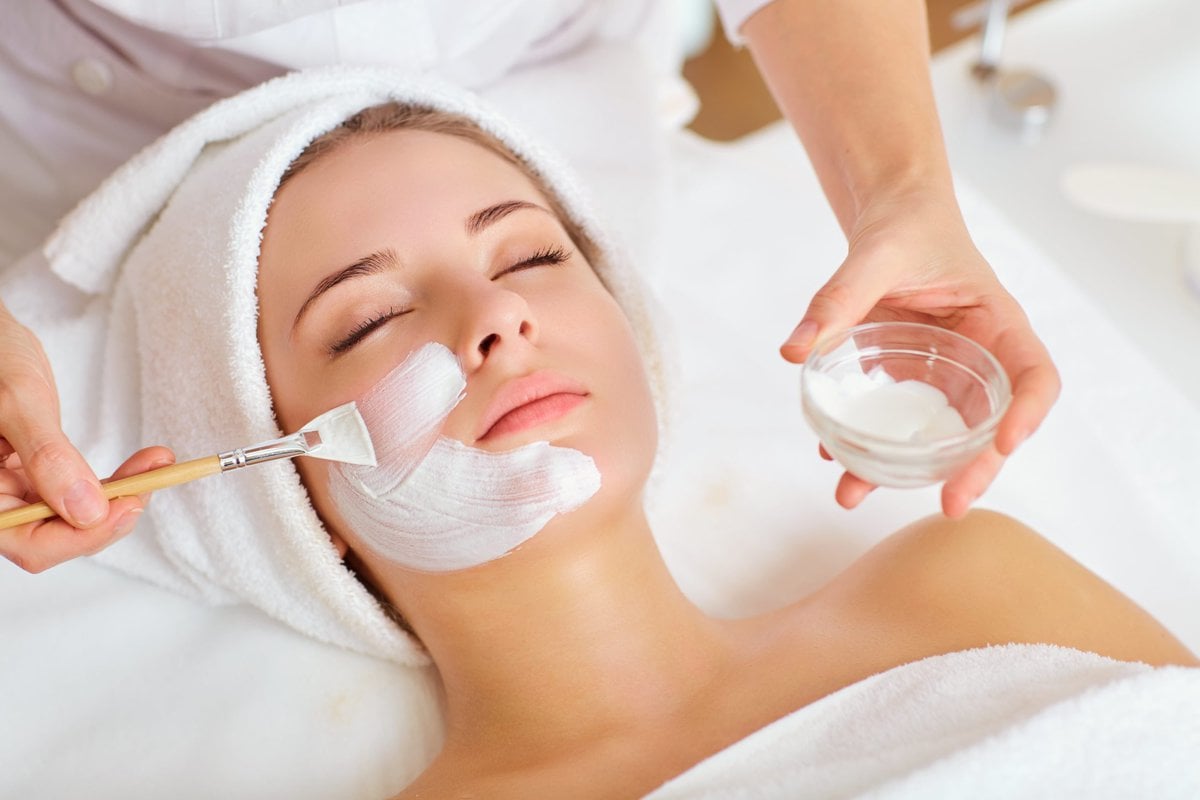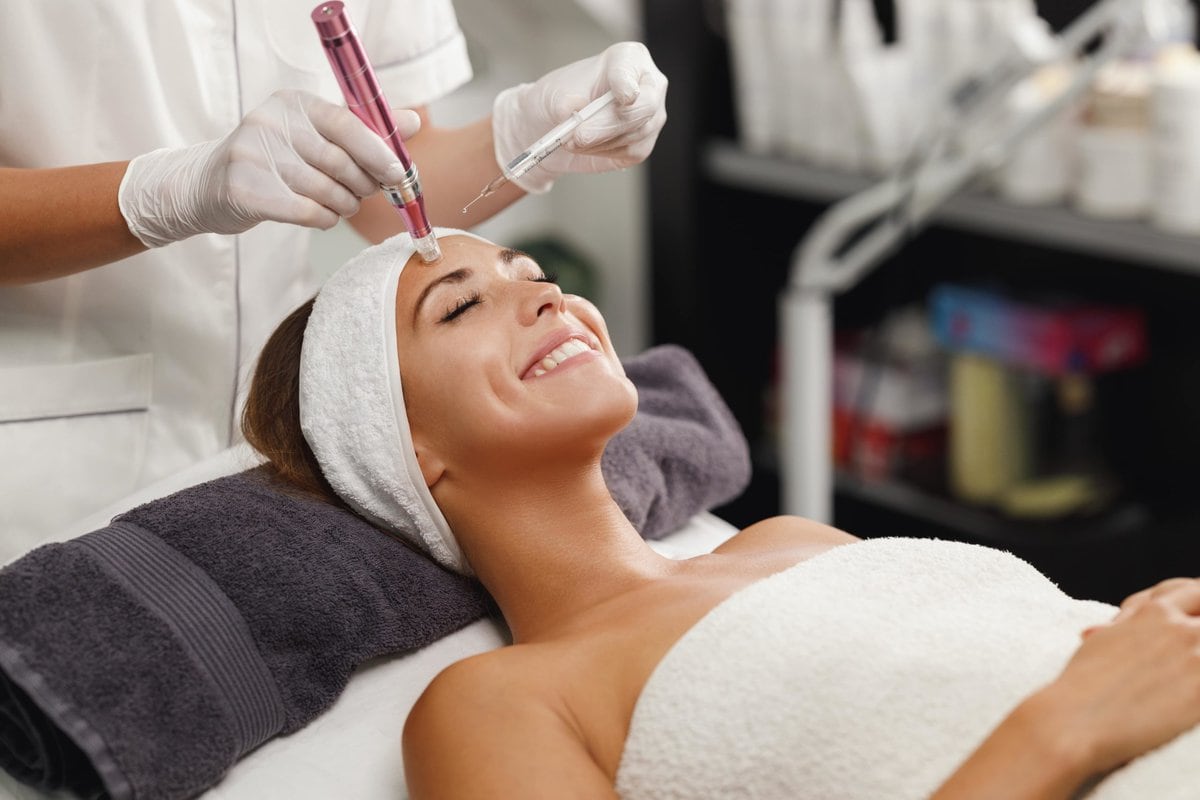Introduction
Acne scars can be a frustrating and persistent problem for many people. While several treatments are available, one that has gained popularity in recent years is chemical peels. Chemical peels involve using a chemical solution to remove the top layer of skin, which can help reduce the appearance of acne scars. Glo Esthetics is a professional skin care service that offers chemical peels for acne scars. This blog will discuss the different types of chemical peels and their benefits for acne scars. We will also provide tips for preparing for a chemical peel and aftercare to ensure the best results. Finally, we will answer some frequently asked questions about chemical peels, so you can decide if this treatment is right for you.
What are chemical peels?
Chemical peels are a cosmetic treatment that involves applying a chemical solution to the skin to exfoliate and remove the top layer of dead skin cells. This process helps to reveal smoother, more radiant skin underneath. The chemical solution can be made from various ingredients, such as glycolic acid, salicylic acid, or lactic acid. The type of acid used will depend on the individual’s skin type and the specific concern being addressed.
Chemical peels are classified into three types: superficial, medium-depth, and deep. Superficial peels are the mildest form and can be performed by a trained aesthetician. Medium-depth peels are more intense and can be performed by a dermatologist or plastic surgeon. Deep peels are the most intensive and require a skilled medical professional.
The depth of the chemical peel will depend on the severity of the acne scars being treated—the deeper the peel, the more significant the results and the longer the recovery time.
Chemical peels for acne scars
Chemical peels are effective in reducing the appearance of acne scars. The exfoliation process removes the top layer of dead skin cells, which can help reduce the appearance of shallow acne scars. Chemical peels can also stimulate collagen production, which can help improve the appearance of deeper acne scars over time.
Several types of chemical peels can be used to treat acne scars. Glycolic acid peels are the most common and suitable for mild to moderate acne scarring. Salicylic acid peels are best for acne-prone skin as they help unclog pores and reduce inflammation. TCA (trichloroacetic acid) peels are a more intensive option that can be used to treat deeper acne scars.
The expected results of a chemical peel for acne scars will depend on the severity of the scarring and the depth of the peel used. Superficial peels may require multiple treatments for noticeable results, while deeper peels can significantly improve after just one treatment. Your skincare professional can recommend the best treatment plan for your specific needs.
Tips for preparing for a chemical peel
Before undergoing a chemical peel, there are a few things you can do to prepare and ensure the best possible results. Here are some tips to keep in mind:
- Avoid sun exposure: It’s essential to avoid sun exposure before and after a chemical peel, as this can increase the risk of complications and delay healing. Wear sunscreen daily and avoid direct sunlight as much as possible.
- Stop using certain skincare products: Certain skincare products, such as retinoids and exfoliating scrubs, can increase skin sensitivity and irritation. It’s best to stop using these products for at least a week before your chemical peel.
- Discuss any medications with your skincare professional: Some medications, such as antibiotics and blood thinners, can increase the risk of complications during a chemical peel. Be sure to inform your skincare professional of any medications you are taking.
- Stay hydrated: Drinking plenty of water before your chemical peel can help hydrate your skin and improve the results.
- Plan for downtime: Depending on the depth of the chemical peel, you may experience some redness, swelling, and peeling afterward. Plan for downtime and avoid social events or activities that irritate your skin.
Aftercare for a chemical peel
After undergoing a chemical peel, properly caring for your skin is important to ensure the best possible results. Here’s what you can expect and how to care for your skin after a chemical peel:
A. What to expect after a chemical peel:
- Mild redness and swelling: It’s normal to experience some redness and swelling after a chemical peel. This typically subsides within a few days.
- Peeling or flaking: Depending on the depth of the peel, you may experience some peeling or flaking of the skin. This is a normal part of the healing process.
- Sensitivity: Your skin may be more sensitive after a chemical peel, so avoiding harsh skincare products or treatments is important.
B. How to take care of your skin after a chemical peel:
- Avoid direct sunlight: Avoiding direct sunlight after a chemical peel is important, as your skin will be more sensitive to UV rays. Wear sunscreen daily and avoid sun exposure as much as possible.
- Moisturize: Keep your skin hydrated and moisturized to promote healing and reduce the risk of dryness or peeling. Use gentle, fragrance-free moisturizers.
- Avoid certain skincare products: Avoid using harsh skincare products or treatments, such as exfoliating scrubs or retinoids, for at least a week after your chemical peel.
- Be gentle: Be gentle with your skin and avoid rubbing or picking at any peeling or flaking areas. This can increase the risk of scarring or infection.
- Follow your skincare professional’s instructions: Your skincare professional will provide specific instructions on how to care for your skin after a chemical peel. Follow these instructions carefully to ensure the best possible results.
Frequently asked questions about chemical peels.
If you’re considering a chemical peel for acne scars on your face, you may have some questions about the treatment. Here are some of the most frequently asked questions about chemical peels:
A. Who is a good candidate for a chemical peel?
Chemical peels are a good option for people who have mild to moderate acne scarring on their face. They may also be suitable for those with sun damage, uneven skin tone, or fine lines and wrinkles. However, only some are good candidates for a chemical peel, and your skincare professional will assess your skin to determine if it’s the right option for you.
B. How often should I get a chemical peel?
The frequency of chemical peels depends on several factors, including the depth of the peel and your individual skin type and concerns. Generally, a series of peels spaced a few weeks apart is recommended for best results. Your skincare professional will recommend a specific treatment plan based on your needs and goals.
C. Are chemical peels painful?
Chemical peels can be slightly uncomfortable, but they are not typically painful. You may experience some tingling, stinging, or mild discomfort during the treatment, but this usually subsides quickly. Your skincare professional may use a cooling fan or other measures to keep you comfortable during the treatment.
Final Thoughts
Chemical peels can be an effective way to improve the appearance of acne scars on the face. With the guidance of a licensed skincare professional, you can choose the right type of chemical peel and create a treatment plan that meets your unique needs.
While chemical peels require some aftercare and downtime, the results can be significant and long-lasting. With proper care and maintenance, you can enjoy a smoother, more even complexion that boosts your confidence and improves your overall appearance.
Contact Glo Esthetics today if you want to learn more about chemical peels or schedule a consultation. Our team of licensed aestheticians has extensive experience in performing chemical peels for acne scars and other skin concerns. We’re dedicated to helping you achieve your best possible skin and look forward to working with you!





